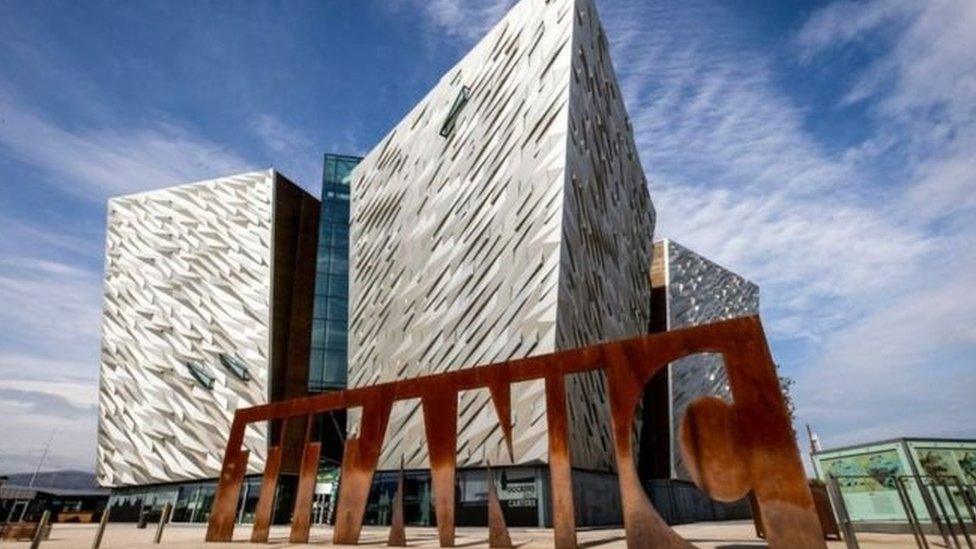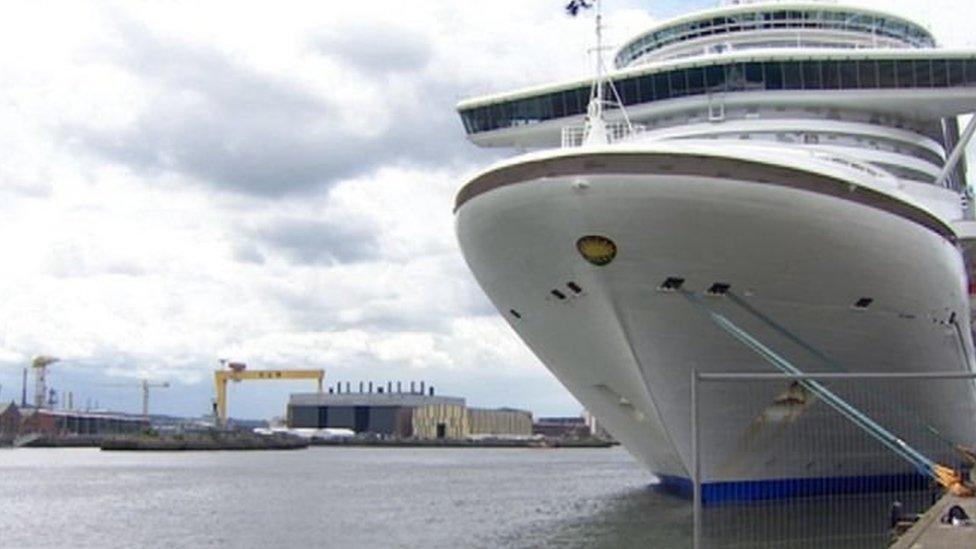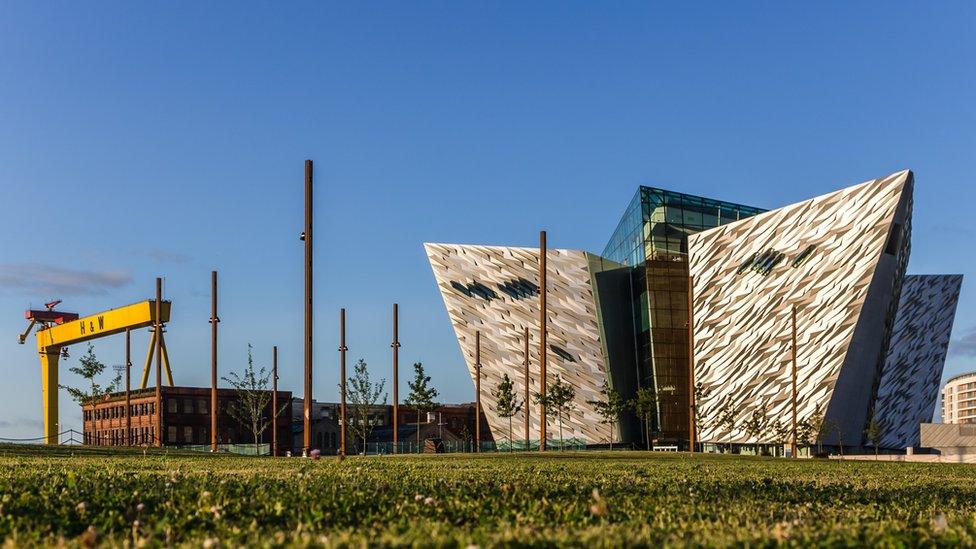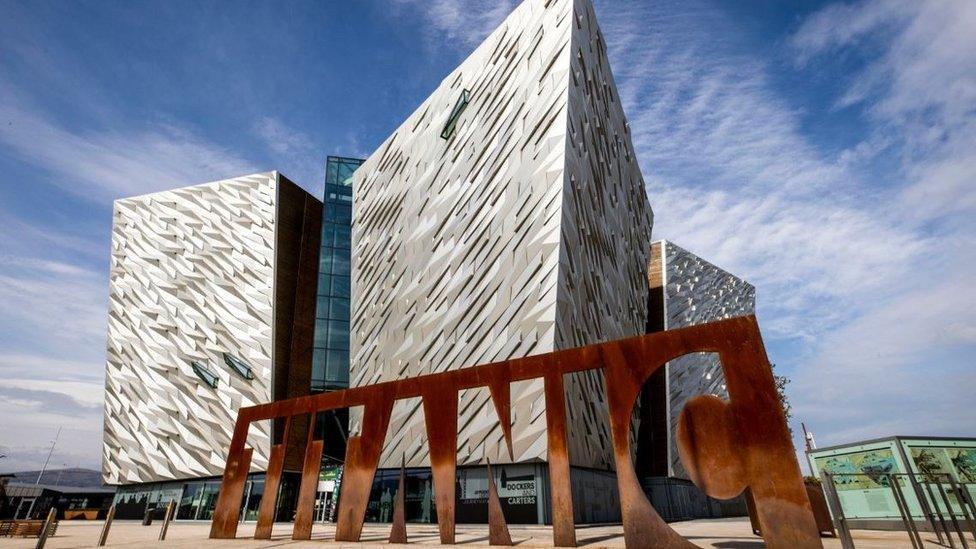Coronavirus: NI tourism industry faces redundancy challenges
- Published

Titanic Belfast, a major visitor attraction, will reopen on 1 August but expects visitor numbers to be just 30% of what they were in 2019
Northern Ireland's tourism industry got welcome news this week when it was announced its lockdown will end earlier than planned.
Hotels, bars, restaurants and cafes can reopen from 3 July, ahead of the original target date of 20 July.
But challenges for the sector remain, with Titanic Belfast saying it was planning to make up to 75 redundancies.
It is one of Northern Ireland's top tourist attractions, pulling in more than 800,000 visitors in 2018.
That was second only to the Giants Causeway, which had more than one million visitors.
'Redundancies are necessary'
BBC News NI has seen an email sent by Titanic Belfast's chief executive, Judith Owens, to her staff explaining why redundancies are necessary.
It makes for sobering reading for the entire sector.
She said the attraction will reopen on 1 August but that overall visitor numbers are expected to be just 30% of what they were in 2019.
The expected fall is attributed to "required physical distancing, lack of air and sea access, and consumer nervousness".
It is assessed that European and other international markets will not return in 2020 or 2021.
The tour operator market is also said to be unlikely to return in 2020 and will be at a significantly reduced level in 2021/22.
It is also forecast that school trips, another important business sector, are unlikely to return in the short term.

Cruise ship passengers usually form a big part of Northern Ireland's tourism industry
The Northern Ireland domestic market is expected to recover first but that currently accounts for only 11% of Titanic Belfast's business.
This means the facility will be operating at a hugely reduced capacity, with it set to open five days a week from October to March and possibly going down to a three-day week in January.
Titanic Belfast also has a significant conferencing and banqueting business - normally at this time of year planning would be underway for the Christmas party season.
But this side of the business will not return at all in 2020.
Ms Owens wrote: "This is due in part to a lack of clear guidance on a cap on mass gatherings and the fact that incorporating 2m social distancing would prohibit the successful delivery of our main type of events."
The hope is to relaunch in 2021, by which time the guidance on social distancing may have been reduced to 1m rather than the current 2m rule.
Conferences have been an important part of tourism growth in Belfast in recent years.
They bring midweek business travellers into the city and so the development of the International Conference Centre (formerly the Waterfront Hall) sparked a surge in new hotel openings.
Salvaging a summer season
Rajesh Rana has more hotel rooms in Belfast than any other operator.
His family's business, Andras House, has almost 1,000 rooms across six hotels.
He was seeing the positives this week, with the 3 July reopening giving him a fighting chance of salvaging the summer season.
"The summer's important, particularly because I think corporate travel will still take a while to recover, so leisure guests who will be having staycations are essential for us," he said.
"I think a lot of people still have holidays booked in July even if they've got nowhere to go, so we're hoping to see a busy July and August season."
- Published15 June 2020

- Published22 April 2020
